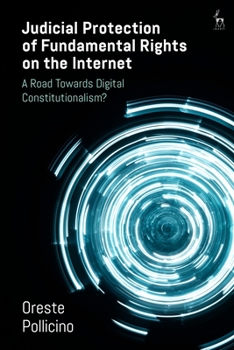Judicial Protection of Fundamental Rights on the Internet: A Road Towards Digital Constitutionalism?
Select Format
Select Condition 
Book Overview
This book explores how the Internet impacts on the protection of fundamental rights, particularly with regard to freedom of speech and privacy. In doing so, it seeks to bridge the gap between Internet Law and European and Constitutional Law.
The book aims to emancipate the debate on internet law and jurisprudence from the dominant position, with specific reference to European legal regimes. This approach aims to inject a European and constitutional "soul" into the topic. Moreover, the book addresses the relationship between new technologies and the protection of fundamental rights within the theoretical debate surrounding the process of European integration, with particular emphasis on judicial dialogue. This innovative book provides a thorough analysis of the forms, models and styles of judicial protection of fundamental rights in the digital era and compares the European vision to that of the United States. The book offers the first comparative analysis in which the notion of (judicial) frame, borrowed from linguistic and cognitive studies, is systematically applied to the theories of interpretation and argumentation. With a Foreword by Robert Spano, President of the European Court of Human Rights.Format:Paperback
Language:English
ISBN:1509947221
ISBN13:9781509947225
Release Date:November 2022
Publisher:Hart Publishing
Length:320 Pages
Weight:0.81 lbs.
Dimensions:0.6" x 6.1" x 9.2"
Customer Reviews
0 rating





